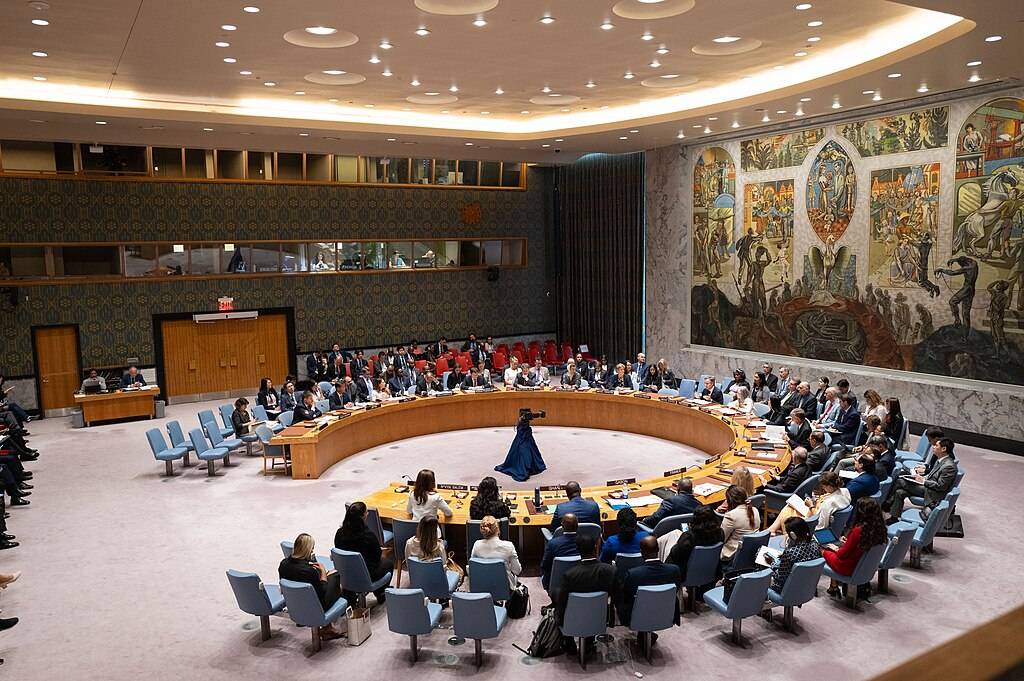In a rare and highly sensitive move, the United Nations Security Council (UNSC) convened behind closed doors to discuss the security situation between India and Pakistan following the deadly terror attack in Pahalgam last month. The attack claimed the lives of 25 tourists and a local pony ride operator, sparking outrage across India and concern in diplomatic corridors around the world. The meeting, held under strict confidentiality in accordance with Rule 48 of the Provisional Rules of Procedure of the UNSC, signifies the fragile regional security balance and the global concern about a potential escalation between the nuclear-armed neighbours. While no formal resolution has been introduced, the Council has been quietly mobilized to diffuse tensions, reaffirm a ceasefire, and open avenues for structured bilateral dialogue.
UNSC: The Heart of Global Peace and Security
Established under the UN Charter in 1945, the Security Council is the United Nations’ primary body for maintaining international peace and security. It has the power to investigate disputes, impose sanctions, authorize the use of force, and adopt binding resolutions under Chapter VII of the Charter. With 15 members, five permanent (China, France, Russia, the United Kingdom, and the United States) and ten rotating non-permanent members, the Council operates through a combination of legal authority and geopolitical influence. In this regard, the Provisional Rules of Procedure define the internal working procedures of the Council, including the conduct of meetings and consultations.
In the present instance, Pakistan reached out to the UN Security Council. The attack in Pahalgam created a war-like situation in the region, leading to intensified troop deployment along the Line of Control (LoC) and repeated exchanges of fire.
Behind Closed Doors: Rule 48 and Diplomatic Discretion
The recent meeting was held as a closed-door consultation, a format specifically allowed under Rule 48 of the Council’s procedural law, which permits private sessions when confidentiality is considered essential to preserving diplomatic integrity. Unlike formal sessions, where records are maintained, voting occurs, and the media may be present, closed-door consultations are confidential, with no transcripts made public. This format allows Council members to speak freely, assess facts without external pressure, and shape consensus before any potential formal resolution is tabled. The consultation was facilitated by senior diplomats from the Department of Political and Peacebuilding Affairs (DPPA), in close coordination with Secretary-General António Guterres with an aim to prevent any immediate military escalation, and to enable a pathway for structured bilateral dialogue.
Ceasefire Holds—But Fragile Peace Persists
While the May 10 ceasefire agreement between India and Pakistan appears to be holding. However, the situation remains tense, with both militaries maintaining a heightened state of readiness. For now, the United Nations’ diplomatic engine remains quietly engaged through meetings, cables, and private briefings.
Conclusion: The Role of Quiet Diplomacy in a Noisy World
The events following the Pahalgam attack illustrate both the peril and potential of international diplomacy. In an age of real-time outrage and social media pressure, the UNSC’s quiet corridors remain essential spaces for reflection, negotiation, and de-escalation. Closed-door consultations, often criticized for their opacity, surprisingly allow the most sensitive conversations to take place.
Whether these efforts culminate in a lasting peace or yet another cycle of confrontation will depend not just on the diplomatic process but on substantive change in regional relations, and international counterterrorism collaboration. The road to peace is long but in diplomacy, even a closed-door conversation can be the first step toward an open future.
[Representational image by U.S. Department of State, Public domain, via Wikimedia Commons]
Professor Abhinav Mehrotra is an Associate Professor and Assistant Director at O.P. Jindal Global University. His research interests include International law, Human rights law, UN studies, Refugee law, Child rights, and Transitional Justice.
Dr. Biswanath Gupta is an Associate Professor at O.P. Jindal Global University. His research interests include International Law, Air and Space Law. The views and opinions expressed in this article are those of the authors.

